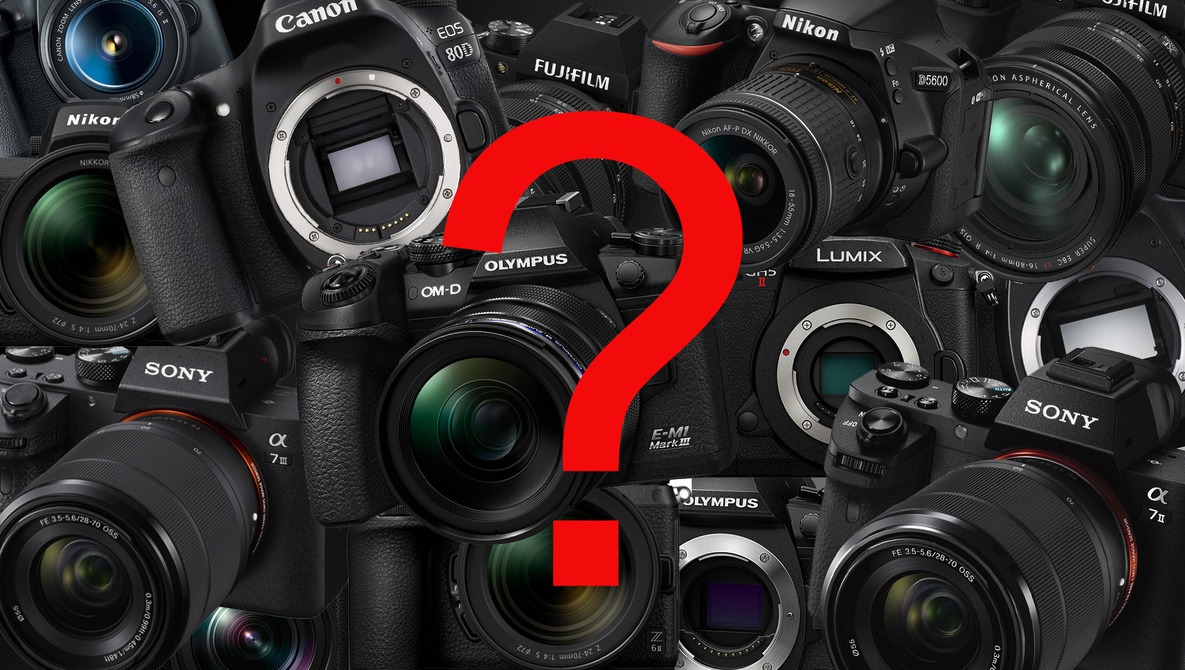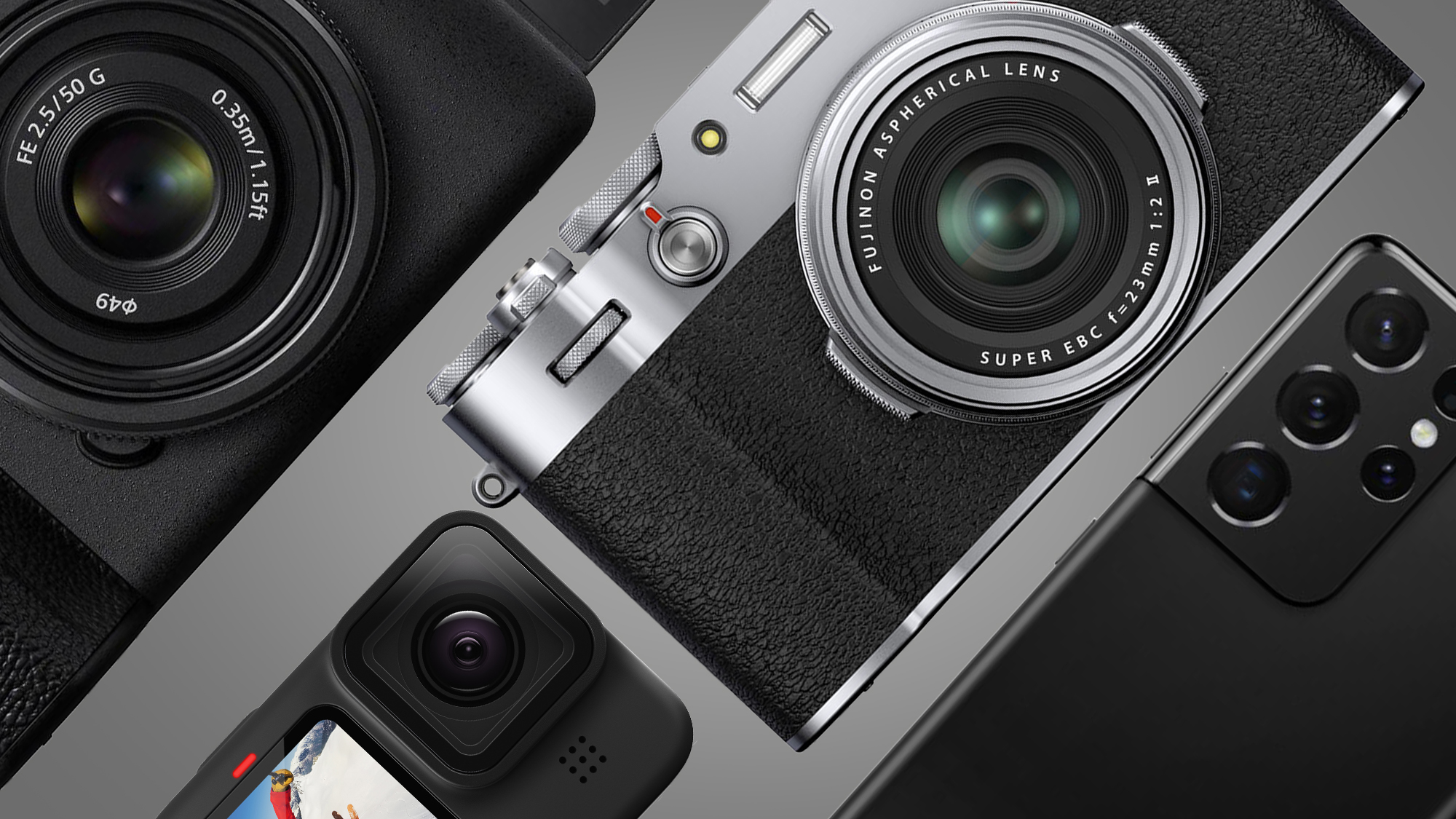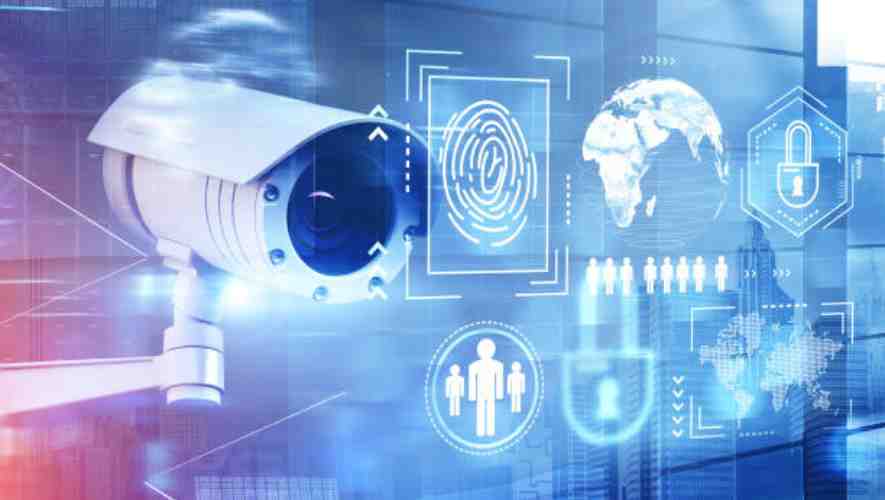Demystifying the Camera Buying Process: Your Guide to "what Camera Should I Buy?"
Introduction
Have you ever found yourself asking, "What camera should I buy?" Don't worry, it's a common question for both beginners and photography enthusiasts alike. With the multitude of options available in today's market, it's challenging figuring out the right gear that suits your needs. This comprehensive guide takes you through a journey, demystifying the camera-buying process and helping you make an informed decision.
What Different Types of Cameras Exist, and Which One is Best for You?
Choosing the right camera begins by familiarizing yourself with the various types available in the market. Each type has its strong points and better suits specific photographic needs. Here are the four main categories:
1. DSLR Cameras: Known for their excellent image quality, DSLRs have long been the top choice for professional photographers and passionate hobbyists. With their robust bodies and extensive controls, they provide a high level of flexibility, allowing you to manipulate your shots creatively.

* Pros: Exceptional image quality, wide range of lens options, and manual controls.
* Cons: Often bulky and heavier, making them less convenient for travel.
2. Mirrorless Cameras: A lighter, more compact alternative to DSLRs, these cameras offer nearly comparable image quality. This makes them popular among vloggers and travelers who value portability without sacrificing performance.
* Pros: Compact design, excellent image quality, and fast shooting rates.
* Cons: Limited battery life and fewer lens options compared to DSLRs.
3. Point-and-Shoot Cameras: A step up from smartphone cameras, these devices offer greater photographic control and better image quality while retaining convenience.
* Pros: User-friendly, compact, and generally affordable.
* Cons: Limited settings control and smaller image sensors compared to DSLRs and mirrorless cameras.
4. Phone Cameras: For casual and everyday photography, phone cameras offer the advantage of accessibility and simplified sharing options.
* Pros: Highly portable and convenient with ample sharing options.
* Cons: Limited controls, smaller sensors, and non-interchangeable lenses.
Choose the type that best aligns with your photographic goals, taking into consideration your budget, desired features, and preferences. Through this understanding, you can begin to answer the question, "What camera should I buy?" in a more informed and confident way.
Unraveling Camera Features: What Should You Look for in a Perfect Camera?
Choosing the perfect camera requires understanding different technical features and how they influence the outcome of your images or videos. Here's a quick checklist to guide you through the distinct attributes of a camera:
- Sensor Size: The bigger the sensor, the more detail the camera can capture in your images. This notably affects the depth of field and overall image quality.

- Megapixels (MP): Higher megapixel translates to higher image resolution, allowing you to print large-size pictures without losing detail or giving you the leeway for cropping your photo.
- Lens Compatibility: The type of lens you choose can drastically transform your images. Ensure your camera is compatible with various lenses to keep your options open and prepare for all kinds of photography demands.
- Video Capabilities: 4K videos are the gold standard today, and a camera with this feature is a boon for videographers, vloggers or even if you enjoy filming your travels.
- Low-Light Performance: A camera working well in low light situations is especially crucial for professional photographers who might shoot in varying light conditions.
- Other Features: Apart from the main features, few other essential aspects are the camera's autofocus speed, frame rate, and battery life. Quick and responsive autofocus ensures sharp images, a high frame rate caters the need for fast action shots, and lastly, longer battery life reduces the hassles of charging or changing batteries frequently.
These key factors will help you make a more informed decision, ensuring your new camera aligns with your photography goals. Remember, it’s about meeting your needs, not about having all the features.
How Does Budget Influence Your Camera Buying Decision?
Managing your budget is a critical aspect of finding the right camera. Price ranges for cameras can vary significantly, with costs spanning from a couple of hundred to several thousand dollars. Here's how your budget can influence your camera buying decision:
- Types of Camera: Your budget might dictate the type of camera you can afford. For instance, DSLRs and quality mirrorless cameras tend to be pricier than point-and-shoot cameras.
- Camera Features: Affordable cameras might not offer the same advanced features as their high-end counterparts. High resolution, exceptional low-light performance, and robust autofocus systems often come with a heftier price tag.
- Accessories: When budgeting, don't forget to factor in necessary accessories like lenses, tripods, flash units, and camera bags. These additions can significantly increase the overall cost of your photography setup.
- Future Growth: It's wise to invest in a camera you can 'grow into' over time instead of one that you'll soon outgrow. This might entail spending a bit more now for a camera that serves you well in the long run.
Remember, a good camera is an investment. While staying within your budget is essential, also consider the quality, longevity, and versatility of the camera. Sometimes, spending a little extra upfront can save you money down the line.
What Are the Notable Camera Brands to Consider and Why?
When pondering the question, "What camera should I buy?", it's crucial to consider the brand. Certain manufacturers are acclaimed for producing specific types of cameras, each offering unique benefits. Here are some of the top camera brands in the industry and why they merit your attention:
- Canon: Canon continually locks horns with Nikon for the title of best DSLR manufacturer and for a good reason. Canon DSLRs are known for their exceptional image quality, user-friendly design, and a vastly diverse range of lenses, suitable for any photography genre.
- Nikon: Providing stiff competition to Canon, Nikon’s strengths include reliable performance, advanced autofocus system, and robust build quality that can withstand extreme weather conditions. Similar to Canon, Nikon has an impressive array of lenses to choose from, ensuring versatility for photographers.
- Sony: Asserting a dominant stance in the mirrorless segment, Sony excels in providing full-frame models equipped with state-of-the-art technology, presenting a blend of compactness and high-quality imagery. Video creators often tend to lean towards Sony cameras for their 4K video capabilities.
- Fujifilm: Fujifilm stands out for carrying APS-C mirrorless cameras, acclaimed for their impressive color rendition and stunning retro aesthetic. Fujifilm's cameras are compact, producing professional-quality images that appeal to both beginners and experienced photographers.
- Panasonic: Particularly favored by video-focused photographers, Panasonic's mirrorless cameras offer remarkable 4K and 6K video solutions, harnessing innovative features like post focus and 4K photo mode.
- Olympus: Specializing in micro four-thirds mirrorless cameras, Olympus is appreciated for its compact and portable gear, making it an ideal choice for travelers or those who value minimalism and lightweight equipment.
- Leica and Hasselblad: Falling into the luxury category, both Leica and Hasselblad have carved a niche for themselves in the camera world. Renowned for their premium build quality, unique stylistic choices, and phenomenal image quality – these brands represent the epitome of photographic heritage and luxury.
Remember, while the brand plays a significant role in the camera buying process, it should not be the sole determining factor. Prioritize your photography needs and budget to ensure you make an optimal choice.
What Are the Essential Camera Accessories You Need to Account For?
When venturing into the world of photography, it's important to take into account not only the camera but also an assortment of essential accessories. These equipment additions compliment your camera and elevate your photography experience to new heights.
• Tripod: This non-moving three-legged stand is a cornerstone element in photography. Ideal for capturing steady long-exposure shots, a durable tripod ensures clarity of images.
• Memory Card: Always carry a spare! This failsafe advice ensures you never run out of storage space in midst of a photography spree.
• Filters: These camera add-ons can prove pivotal in enhancing colors or reducing reflections. They provide a unique perspective on routine shots.
• External Flash: Necessary for low-light photography, an external flash gives the extra light required to achieve the perfect exposure.
• Camera Bag: As the shield for your precious gear, a camera bag adds durability and ease in transporting your equipment.
• Batteries: Essential for any electronics, never overlook the power of a spare battery.
Remember, while the camera remains the star, these roles in its supporting cast are equally essential in your photographic journey. While they add to the cost, they immensely enrich the quality and the ease of capturing memories.
Conclusion
Purchasing a camera involves careful consideration of your photography needs, budget, and the type of photos you intend to capture. By understanding the various types of cameras and their features, you can confidently navigate the market and find 'the one.' Remember, the perfect camera doesn't exist; it's all about finding the right fit for you.
Related FAQs about what camera should i buy
Is a DSLR or a Mirrorless camera better for a beginner?
Both DSLR and mirrorless cameras are suitable for beginners, but your choice depends on your specific needs. DSLRs are traditional and offer a wide range of lenses, excellent for learning the nuances of photography. Mirrorless cameras are more compact and lightweight with fewer lenses, making them perfect for travel.
How important are megapixels in a camera?
Megapixels determine the resolution of your images. More megapixels mean higher resolution, allowing you to print larger photos or crop your photos without losing detail. However, they're just one aspect of image quality; sensor size and lens quality also play significant roles.
Can a good camera eliminate the need for additional camera accessories?
Even the best cameras can't entirely eliminate the need for accessories. Items like tripods help stabilize shots, filters control light and color, external flashes enhance low-light photography, and extra batteries ensure uninterrupted shooting. While not always necessary, accessories often enhance the photography experience.


